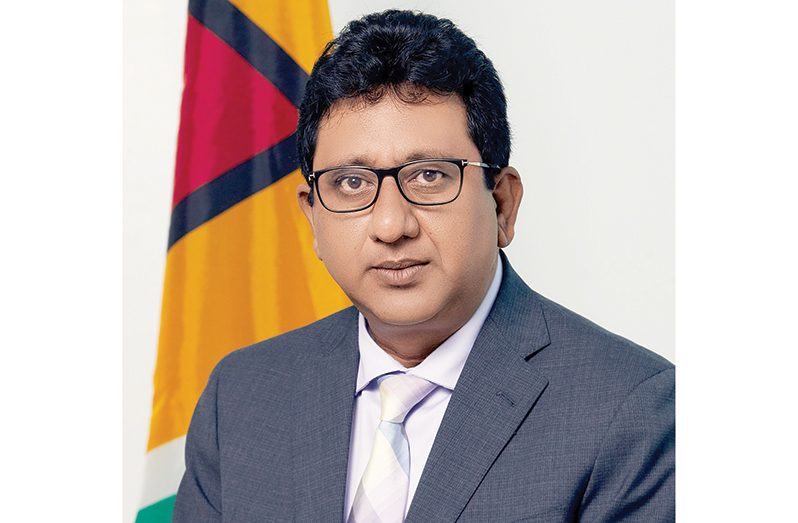–Chief Justice’s ruling in alignment with authorities, Attorney-General says
By Richard Bhainie
THE law pertaining to an election petition and issues that arise surrounding the petition is perspicuous and stringent, the rigidity of which renders the petition a nullity, once the proper procedures are not adhered to.
In the circumstances, Attorney-General and Minister of Legal Affairs, Anil Nandlall, S.C., on Monday, subsequent to the ruling of the Chief Justice (ag), Roxane George, in the matter of Monica Thomas et anor v Keith Lowenfield et al, lauded the judgment as “reasoned” and “comprehensive”.
The petition, 99 of 2020, was filed on September 15, 2020, and was supposed to have been served on the respondent, David Granger, five days thereafter. However, it was not served to Granger until September 28.
Nandlall explained that the Attorney-General’s Chambers, as well as counsel appearing for the respondent, Vice-President Bharrat Jagdeo, filed submissions to strike out the petition, on the grounds that the requisite documents were not served on Granger within the prescribed time stipulated by law.
As he further explained, in order to circumvent the error, the petitioners sought to argue that Granger was not a necessary party in the matter at hand, and as such there was no necessity to serve him.
Citing what she described as “unmeritorious submissions” from the lawyers representing the petitioners, the Justice George ruled that the petition is invalid, on the basis that Granger was served the petition after the prescribed time for service would have expired.
“The law is very clear; when the election petition documents, or election petitions are not served within the time stipulated, the law is very strict,” the Attorney-General said, adding: “The law is very rigid; and the law says that the petition is a nullity, and must be dismissed; that the court has no jurisdiction to deal with a petition.”
He explained that there is a decade of case-law authorities in existence, from jurisdictions across the globe, including Guyana, which supports the proposition.
The Attorney-General elucidated that it would have been wrong, and against the principles of natural justice and fairness not to have made Granger a party to the proceedings, since he represented a list of candidates who won seats in the National Assembly.
“There is a plethora of cases right across the English Commonwealth, including Guyana, that decided that point, in terms of who should be made a respondent to an elections petition,” Minister Nandlall said.
He added: “Examining the law in almost every jurisdiction where the issue has arisen, the cases say, uniformly and consistently, that every party that contests an election must remain in an elections petition.”
He lauded the Chief Justice’s ruling in the matter, noting that the judgment was very long, reasoned, and comprehensive, since it examined all the legal issues at length, and applied the relevant case law.
He further noted that those arguments that she rejected were done with good reason, and that those she accepted were in alignment with the supporting authorities.
“I believe it’s a very, very good judgment, and a judgment which will guide us in the future,” he said.




.png)









